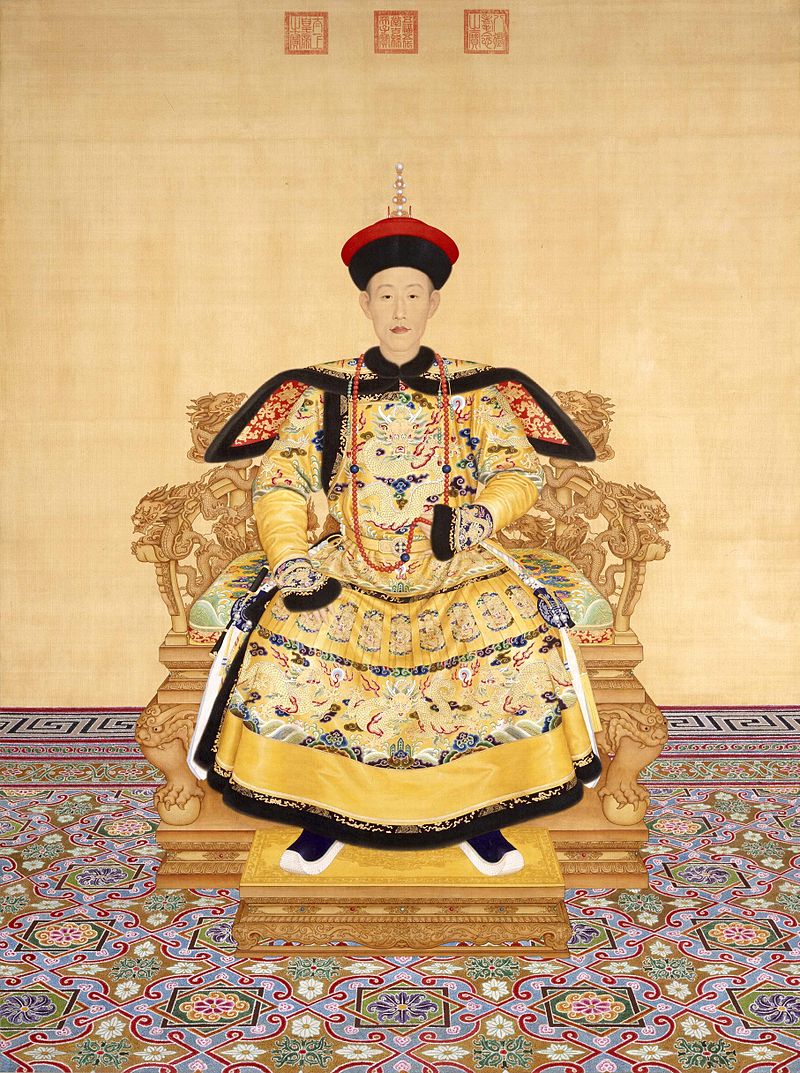Part 1-Humble Origins
“When a country is well governed, poverty and a mean condition are things to be ashamed of. When a country is ill governed, riches and honour are things to be ashamed of.”
-Confucius
“Why are the Western nations small and yet strong? Why are we large and yet weak? We must search for the means to become their equal, and that depends solely on human effort… In the matching of words with deeds, we are inferior to the barbarians. The remedy is to seek the causes in ourselves. This can be changed at once if only the emperor would set us in the right direction.”
-Feng Guifen, 1861

Jiaqing Emperor, 6th Emperor of China
1735; The New Emperor
Following the sudden death of the Yongzheng Emperor in 1735, the will was taken out and read before the entire Qing imperial court, after which Hongli became the new emperor. Hongli adopted the era name "Qianlong", which means "Lasting Eminence". -Confucius
“Why are the Western nations small and yet strong? Why are we large and yet weak? We must search for the means to become their equal, and that depends solely on human effort… In the matching of words with deeds, we are inferior to the barbarians. The remedy is to seek the causes in ourselves. This can be changed at once if only the emperor would set us in the right direction.”
-Feng Guifen, 1861

Jiaqing Emperor, 6th Emperor of China
1735; The New Emperor
First on the list of duties for the Emperor was to reign in the rebels of the Miao rebellion. Failed reforms and efforts to integrate the Miao people into the Qing empire had lead to armed revolt, with many killing their wives and children, and fighting to the last drop of blood against their overlords. The Qianlong Emperor was not dissuaded, despite the cries of peace and compromise. Over 18,000 Miao rebels were slaughtered by the Qing army, and order was inevitably brought to the region. Many more were killed in the resulting re-occupation and integration into the Qing dynasty's control.
Despite this, efforts were brought to open new mines, schools, trading ports and military outposts. The Qianlong Emperor was not a heartless ruler, and worked tirelessly to have the Miao as a people of the empire, not a conquered state left to the side to the Empire to draw taxes from.
The joy of the rebellion's quelling was not long lasted, as the conquest of the Dzungar Khanate was next on the agenda of the new Emperor, wishing to see these last of these Inner Asian peoples brought to heel under Qing rule, in the new province of Xinjiang. What mercy the Qianlong Emperor had for the Miao was not brought for the Dzungar, who were then decimated by the Qing's military, part of his planned expansion of his glorious Empire. Many Han chinese and Manchu people were encouraged to colonize the Miao and Xinjiag territories with the hopes of modernization and spread of Qing ideals.
Internal conflicts could now, at last, take a backburner priority, as the Emperor soon came to a new realization; The realization that the empire would not last if it could not stand alongside the others, like the British, French, the Russians and more. When he looked at his army, he saw an army great in size but lacking in it's ability. When he looked at his government, he saw a government rich in history but lacking in efficiency. Something had to give, or something had to break.
(Updates; I've added Threadmarks for those who wanna go to each bit of lore rather than scrolling. Cheers!)
Last edited:


